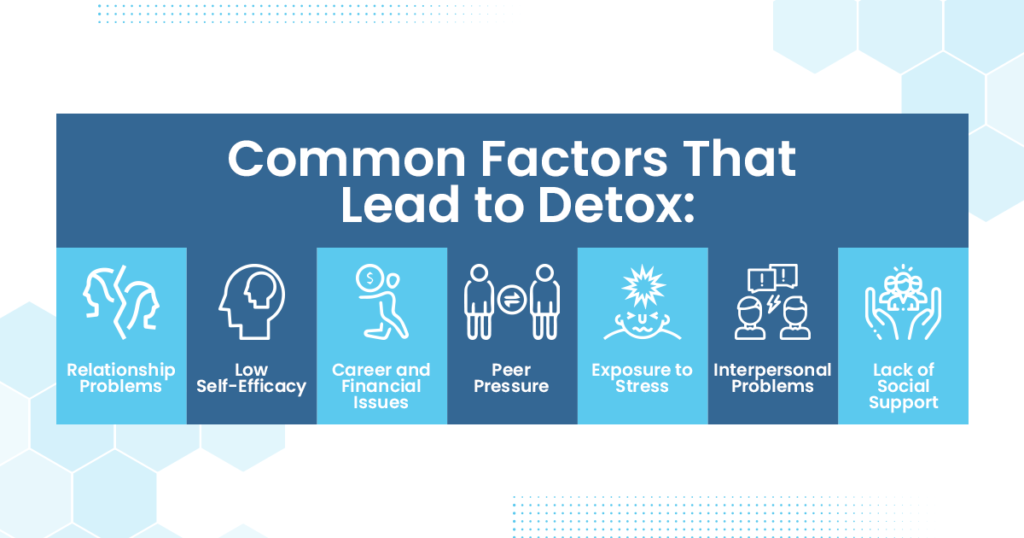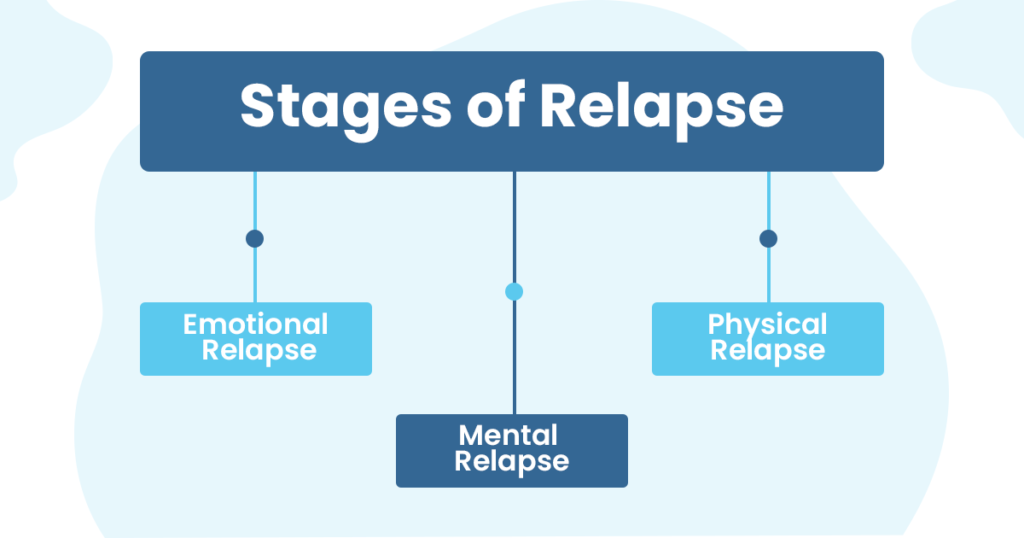
If you or your loved one is battling addiction or a substance use disorder (SUD), you may have heard the term “relapse.” After achieving short-term or long-term sobriety, a relapse is when a person in recovery resumes substance abuse. Relapse will cause the addiction to continue, and the patient must undergo treatment again.
During recovery, relapse is a major concern. The National Institute on Drug Abuse (NIDA) reports that 40 to 60 percent of people in recovery experience relapse. When you return to an addictive lifestyle, it can be distressing for you and your family members. Entering drug or alcohol rehab can help you discover what you need to do to dodge relapse in the future.
Definition Of Relapse
So, what is the definition of relapse? Relapse is defined as the resumption of substance abuse or dependence after a short-term or long-term period of recovery and sobriety. Relapse can occur at any stage of recovery. It is most common during the first several months of sobriety and the early stages of recovery.
Many people who are in recovery experience relapses of varying durations. The most common factors that might lead to relapse are:
- Relationship problems
- Low self-efficacy
- Career and financial issues
- Peer pressure
- Exposure to stress
- Interpersonal problems
- Lack of social support
One of the most common relapse triggers revolves around stress and emotions. Negative emotions and stressful situations might lead to relapse as a coping mechanism for adverse life events and circumstances. Understanding the definition of relapse can help you prepare for challenges during early recovery and establish a relapse prevention plan with your treatment team and support network.
Stages of Relapse
A relapse often proceeds in a series of three stages:
Emotional Relapse Stage
The emotional relapse stage occurs before you pick up a drink or a drug. During this period, you may lose the ability to manage your emotions effectively. Instead, you may bottle up your feelings, distance yourself from others, ignore the existence of your problems, and neglect your self-care. While you may not be actively considering using at this time, suppressing your emotions and unpleasant situations might set the stage for future relapse.
Mental Relapse Stage
During the mental relapse stage, you become aware of mixed feelings about sobriety. While a part of you may wish to remain clean, another part of you may be struggling with cravings and secretly considering ways to relapse. A mental relapse may also involve glorifying past drug usage, downplaying its harmful effects, and actively seeking opportunities to get high or drunk.
Physical Relapse Stage
The last act of using drugs or alcohol is the physical relapse stage. What begins as a single drink or use of a drug can swiftly escalate into a full-blown relapse in which you feel you have no control over your usage.
Strategies To Reduce The Risks Of Relapse
Relapse prevention is a critical component of long-term relapse management strategies. The following techniques have been proven to be successful in reducing relapse chances for those who are dependent on alcohol or another drug.
- Avoiding people, places, and situations that previously led the person to use alcohol or other drugs.
- A strong support network, whether through a professional service provider or an informal network of supportive friends and family members, will help avoid negative behaviors and situations.
- Inspire the person to develop a good self-image and sense of pride by engaging in activities that positively benefit the community, such as joining a community sports team, choir, or particular interest group.
- Neglecting your physical and emotional health might be a trigger for substance abuse. Inspire the person to develop healthy lifestyle habits, such as receiving sufficient rest and recovery time, eating nutritious food, and maintaining a clean living environment.
- In addition to the person’s short-term aim of reframing how they see events, encourage them to strive to learn from their mistakes, develop a positive self-image, and create future goals, including ones unrelated to their alcohol or drug use.

Frequently Asked Questions (FAQs)
What does it mean when you relapse?
A relapse is a return to drug or alcohol use after a period of abstinence. The difference between a lapse and a relapse is that a lapse is a temporary “slip” when a person drinks or uses drugs but then quickly stops, but a relapse is a full-blown return to drinking and/or drug use.
What is an example of relapse?
A relapse is a return to alcohol, drug usage, or gambling that a person has previously managed to control or quit. In a relapse, alcohol, other drugs, or gambling go back to previous levels of use or close to this.
For example, Emily has gone three weeks without drinking. She attended a family reunion over the weekend, where she had a tense argument with a relative. She returned home and had five glasses of wine, and for the past two weeks, she has consumed a bottle of wine every night. This is the same quantity of alcohol she consumed every day before quitting. She has been unable to control her alcohol consumption and looking for help.
Emily has experienced a relapse as she struggles to regulate her alcohol use and has returned to excessive drinking.
What is the definition of relapse?
Relapse is defined as the resuming the abuse of substances after a short-term or long-term period of recovery and sobriety. Relapse can occur at any stage of recovery. It is most common during the first several months of sobriety and the early stages of recovery.
Live A Sober Life With The Haven
Relapse to alcohol or drug use does not indicate that you have failed to reach your recovery goal. Various environmental and psychological factors can contribute to this setback. However, the term “relapse” carries more stigma and shame than understanding for those in recovery.
After a relapse, people feel discouraged and hopeless. At that time, they require more compassion and assistance than anything else. Fortunately, the Haven is here to provide the quality support and medical care you need during this time. Our rehab facility offers a safe and comfortable environment to recover and prevent relapse with residential and outpatient treatment options. Our team of medical professionals strives to help our patients heal mentally, physically, and spiritually.
Call us at (561) 328-8627 for additional information on our addiction treatment programs.






